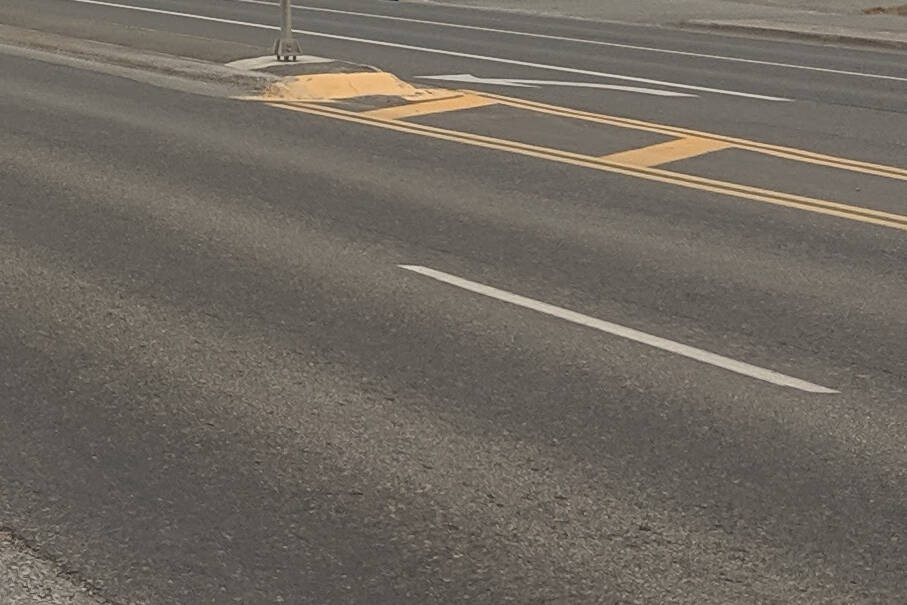Municipalities on the central peninsula are preparing for more all-purpose vehicles to take to local roads starting Jan. 1. The change comes following new regulations approved at the state level last month that will allow all-purpose vehicles to be driven on some public roads with speed limits of 45 mph or less. The regulations drew safety concerns when first proposed earlier this year, but were given the final green light in mid-October.
The State of Alaska defines all-purpose vehicles as any self-propelled device that is on wheels or tracks that comes in contact with the ground, such as four-wheelers, all terrain vehicles, utility terrain vehicles or side-by-sides. Snowmachines and hovercrafts are still prohibited under the new regulations.
Not all roads on the central peninsula will be affected, however, because the regulations allow boroughs and cities to opt out of the laxed rules. Soldotna and Kenai, for example, already prohibit the use of all-purpose vehicles on all roads inside city limits, including city, borough and state roads. Those prohibitions will still apply when the new regulations take effect.
In Homer, in anticipation of the rule change, the Homer City Council passed an ordinance amending city code to prohibit ATVs and snowmachines on city streets. On its Facebook page, Homer Police noted the ordinance and that it comes with a $320 fine and two points on a driver’s license if convicted. City limits extend to the top of West Hill Road and to more rural areas along Skyline Drive. With the city in the middle of the southern Kenai Peninsula along the north shore of Kachemak Drive, that effectively limits ATV users from passing through the city from East End Road or Diamond Ridge Road.
Soldotna City Manager Stephanie Queen wrote in a Nov. 3 memo to the city council that the city is concerned the new state laws may cause confusion for drivers on roads that overlap with city limits. Queen raised concerns about the section of Kalifornsky Beach Road between the Soldotna Regional Sports Complex and Gaswell Road, and Knight Road between the Kenai Spur Highway and the Kenai River. In those cases, the city’s boundary runs down the center of the road.
“The city limits in both of these instances run essentially down the centerline of the roadway, potentially setting up a situation where different traffic laws exist for eastbound vs. westbound traffic,” Queen wrote.
When asked Tuesday how the Alaska State Troopers will coordinate with municipalities in that situation, Acting Communications Director for the Alaska State Troopers Austin McDaniel said it will ultimately be a municipality’s job to enforce its own ordinances.
“If a city, borough, or municipality chooses to adopt a local ordinance to ban all-purpose vehicles within their jurisdiction, then that would apply to all roadways within that jurisdiction, regardless of whether the state, city, municipality, or borough maintains that road,” McDaniel said.
Kenai Police Chief David Ross said Tuesday that Kenai Municipal Code prohibits use of all-purpose vehicles on city roadways maintained by the city or by the state and that the police department is currently working to determine whether portions of city code may need to be changed in response to the new regulations.
Kenai Peninsula Borough Attorney Sean Kelley said Tuesday that the Kenai Peninsula Borough does not currently restrict the use of all-purpose vehicles on public roads. The borough, Kelley said, does not have criminal law enforcement or police protection powers and relies on the Alaska State Troopers to enforce restrictions put on vehicles.
“(The borough) would need first to coordinate with the state regarding enforcement if the borough was to pursue the ‘opt-out,’” Kelley said via email.
Anyone operating an all-purpose vehicle is required to have a valid driver’s license, standard motor vehicle registration for the vehicle, front and rear license plates and insurance. Additionally, all vehicles must have a headlight, one rear-facing red light, one rear-facing red reflector and one rear-facing red brake light. The vehicle must also have brakes, a muffler, a carburetor and a throttle.
Like other vehicles, all-purpose vehicles are required to follow all traffic laws and can be pulled over by an Alaska State Trooper or local police officer. Drivers will not be required to wear helmets while operating all-purpose vehicles, but passengers will. If the vehicle has seat belts, all riders will be required to wear them.
The Soldotna City Council will discuss the implications of the new regulations for city roads during their Wednesday night meeting.
Reach reporter Ashlyn O’Hara at ashlyn.ohara@peninsulaclarion.com. Homer News reporter and editor Michael Armstrong contributed to this story. Reach him at marmstrong@homernews.com.


